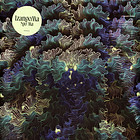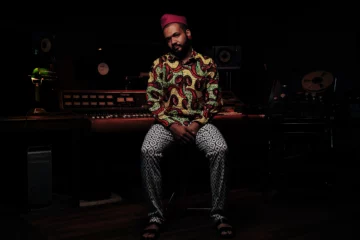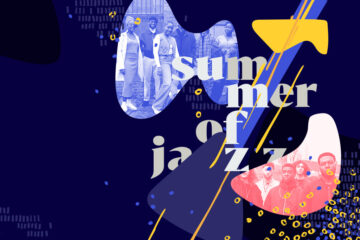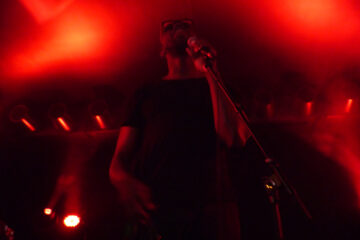The 15-piece ensemble from Pretoria, South Africa, is deeply rooted in Bantu traditions. Their name refers to a branch of traditional healer, the sangoma. The izangoma are shamans who diagnose and heal physical, psychological and social ills. In this sense, the band also tries to proceed therapeutically. Four vocalists around Sibusile Xaba sing about poverty and alienation. They denounce teenage pregnancies. They signal unfulfilled promises of democracy. They demand a different, a better urban life. IzangoMa’s hypnotic songs are rituals, offerings to leave the destructive behind.

Ngo Ma
The musicians explicitly tie in with Bantu traditions. Traditionally, izangoma use mantic rituals such as casting bones to consult with their ancestors. These processes are based on a distinct spiritual teaching, the ngoma. IzangoMa chose a complex word for the title of their album. Its Zulu origin means »from the mother«. In other Bantu languages it means something like »drum«. From there it has become the umbrella term for music in general.
The musicians explicitly tie in with Bantu traditions. Traditionally, izangoma use mantic rituals such as casting bones to consult with their ancestors. These processes are based on a distinct spiritual teaching, the ngoma. IzangoMa chose a complex word for the title of their album. Its Zulu origin means »from the mother«. In other Bantu languages it means something like »drum«. From there it has become the umbrella term for music in general.
The common denominator? The cosmos.
The lyrical-religious syncretism of IzangoMa finds its counterpart in a musical eclecticism. »Ngo Ma« does perhaps have a Western equivalent in cosmic jazz à la Sun Ra, in all its manifestations from free-jazz freakouts to atmospheric worlds. The central role model, however, seems to be the South African jazz veteran Johnny Dyani. IzangoMa not only pays tribute to him with their own tribute song, but also ties in to Dyani’s healing theme.
»Every song is about mothers. We didn’t plan it that way.«
Sibusile Xaba
These influences are compounded by Bantu music and, according to the press release, township styles ranging from Pantsula to Bubblegum. Particularly striking is the timbre of Gqom, a sub-genre of house that emerged in South Africa in the 2010s. Percussionist Ashley Kgabo deliberately uses synthetically generated beats that would fit in well rhythmically with club music. On the master to »Ngo Ma« however, they are relatively quiet and provide a grounding for the expansive genre expedition. Last but not least, IzangoMa shows a willingness to slow down the tempo. »Q&A« combines ambient with the spoken word. A voice takes up the themes on the album: democracy, corporality, hope. A planetary coexistence beyond racism and capitalism. The naivety of their storytelling makes them disarming.
You have to savour the artistic ambitions of IzangoMa. A German-language equivalent would be a band called »The Psychoanalyst«. Their first album, »Structure of Instincts« would have to contain treatises on cultural indifference, wellness guides and free associations. 15 therapists would awaken the repressed with a combination of Django Reinhardt, church music, Sportfreunde Stiller and Berlin techno. Does it sounds like it’s doomed to fail from the outset? Then you’ve got right feeling for the immense ambition that lies at the heart of »Ngo Ma«.









